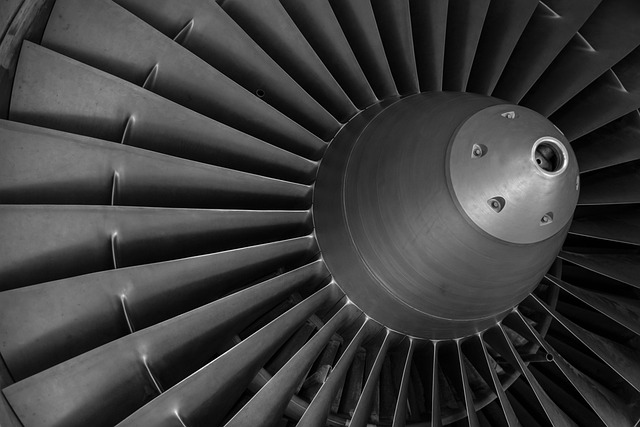# The Future of AI Technology: Transforming Industries and Enhancing Human Capabilities Everywhere
Artificial Intelligence (AI) is no longer a concept confined to the realms of science fiction; it has become an integral part of our daily lives and industries. As we move further into the 21st century, the transformative potential of AI technology is becoming increasingly evident. This article explores the various ways AI is reshaping industries and augmenting human capabilities, providing a glimpse into a future where humans and machines collaborate to achieve unprecedented levels of efficiency and innovation.
## Revolutionizing Industries
Numerous sectors are experiencing a seismic shift due to the integration of AI technologies. Healthcare, for instance, is on the brink of a revolution. Advanced algorithms are now capable of analyzing medical data with remarkable speed and accuracy. This capability allows for early diagnosis of diseases, personalized treatment plans, and predictive analytics that can foresee potential health crises before they occur. The use of AI in imaging technologies, such as radiology, is leading to faster and more accurate interpretations of scans, ultimately improving patient outcomes.
In the world of finance, AI is redefining risk assessment and fraud detection. Machine learning models analyze vast amounts of transaction data to identify patterns that may indicate fraudulent activity. This proactive approach not only protects consumers but also enhances the efficiency of financial institutions. Moreover, AI-driven robo-advisors are democratizing investment management by providing tailored financial advice to individuals, irrespective of their wealth status. Such innovations are making financial services more accessible and efficient.
Manufacturing is another domain witnessing a profound transformation. The advent of AI-powered robotics and automation is streamlining production lines and reducing operational costs. Smart factories equipped with IoT devices and AI algorithms can adapt to changes in demand in real-time, optimizing resource allocation and minimizing waste. This shift not only enhances productivity but also fosters sustainability by reducing the carbon footprint associated with traditional manufacturing processes.
## Enhancing Human Capabilities
While AI technology is revolutionizing industries, it is equally important to consider how it enhances human capabilities. The partnership between humans and AI is creating new opportunities for collaboration, enabling individuals to focus on higher-order tasks that require creativity and critical thinking. By automating repetitive and mundane tasks, AI allows professionals to dedicate more time to innovation and problem-solving.
Education is one area where the synergy between AI and human capabilities is particularly promising. Adaptive learning platforms powered by AI can tailor educational experiences to individual student needs, identifying strengths and weaknesses in real-time. This personalized approach not only improves learning outcomes but also fosters a more engaging and supportive educational environment. As a result, educators can focus on mentorship and guidance, empowering students to reach their full potential.
Furthermore, the creative industries are also benefitting from AI’s capabilities. Artists, musicians, and writers are increasingly using AI tools to enhance their creative processes. For instance, AI-generated art and music are pushing the boundaries of creativity, inspiring human artists to explore new styles and genres. By serving as collaborators rather than competitors, AI technologies are expanding the horizons of human creativity, allowing for the emergence of entirely new art forms.
## Ethical Considerations and Future Implications
As we embrace the future of AI technology, it is crucial to engage in discussions surrounding the ethical implications of its widespread adoption. Concerns about privacy, security, and bias in AI algorithms are at the forefront of public discourse. Ensuring that AI systems are transparent and accountable is essential to maintaining public trust. Developers and policymakers must work together to establish frameworks that promote ethical AI use, ensuring that technology serves humanity rather than undermines it.
Moreover, the potential for job displacement due to automation raises important questions about the future of work. While AI has the capability to enhance productivity, it may also render certain jobs obsolete. Reskilling and upskilling initiatives will be vital in preparing the workforce for an AI-driven economy. By fostering a culture of lifelong learning, individuals can adapt to the changing job landscape and leverage AI as a tool for professional growth.
Looking ahead, the integration of AI technology will continue to evolve, driven by advancements in machine learning, natural language processing, and robotics. The emergence of general AI—machines that possess human-like cognitive abilities—could further transform industries and enhance human capabilities in ways we can only begin to imagine. However, the path to this future must be navigated carefully, with a focus on ethical considerations and the well-being of society as a whole.
## Conclusion
In conclusion, the future of AI technology presents immense opportunities for transforming industries and enhancing human capabilities. As AI continues to revolutionize sectors such as healthcare, finance, and manufacturing, it is also empowering individuals to focus on innovation and creativity. However, the ethical implications and potential challenges associated with AI adoption cannot be overlooked. By fostering a collaborative approach that prioritizes ethics, transparency, and workforce preparedness, we can ensure that AI technology serves as a force for good, ultimately enriching our lives and reshaping the world for the better. The journey into this AI-driven future is just beginning, and the possibilities are limitless.











